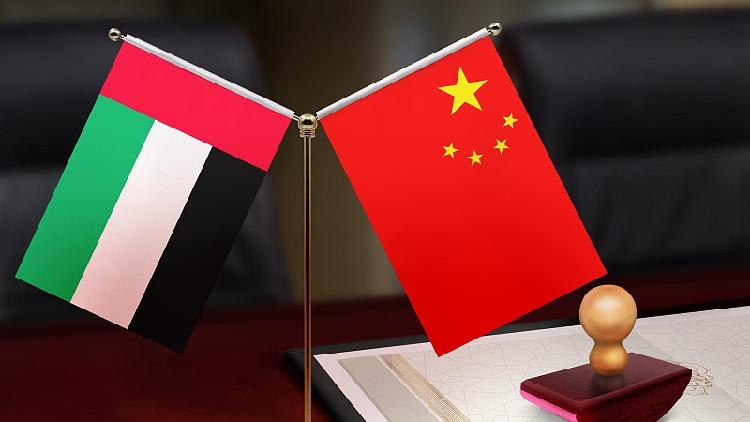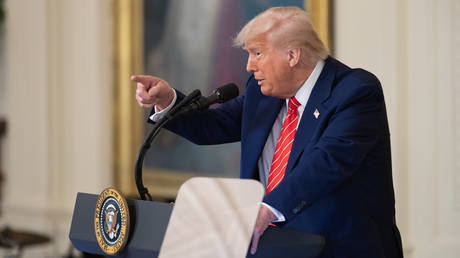New Era for China-UAE Economic Cooperation
This year, we celebrate the 40th anniversary of diplomatic relations between China and the UAE. Thanks to the strategic direction of leadership from both nations, the relationship between China and the UAE has developed positively, showcasing a successful model for China’s ties with Arab countries in the modern era. As we find ourselves at a pivotal moment in history, the alignment on development and the strong complementarity of economic cooperation are poised to enhance the robust growth of the comprehensive strategic partnership between China and the UAE, ultimately benefiting the people of both nations.

Dubai International Airport serves as the initial gateway for many visitors exploring the UAE. First-time travelers might be taken aback by the airport's vastness, the significant number of people, and the diverse mix of passengers and staff, who come from various backgrounds and speak different languages. Notably, the prices at the airport can be quite expensive.
The ascendance of this airport to become the world's second-largest in terms of traffic is closely tied to the UAE's strategic geographical position. Situated at the southeastern tip of the Arabian Peninsula, the UAE acts as a crucial maritime transport hub between the Persian Gulf and the Indian Ocean, linking multiple countries and regions across Asia, Europe, and Africa. It has established itself as a pivotal transportation center in the Middle East.
Moreover, the UAE is endowed with abundant energy resources. As of 2022, it ranks as the world's seventh-largest oil supplier, accounting for 4.3 percent of global oil production, with significant crude oil and natural gas reserves that are among the top ten worldwide.
These distinctive attributes have fostered a robust foundation for the UAE's economic growth. Since its establishment in 1971, the UAE has pursued a steady domestic and foreign policy framework, ensuring a stable political landscape and a thriving economy, making it a beacon of stability in a volatile region. It stands out as one of the Middle East's most stable nations, exhibiting rapid economic growth and a high level of integration into the global economy.
However, similar to other nations in the region, the UAE's economy is heavily reliant on oil, making it susceptible to fluctuations in international markets. To secure sustainable economic development, the UAE is actively working towards a more diversified economic transformation.
In 2010, the UAE launched Vision 2021, which places sustainable development at the forefront of its strategic objectives for the coming decades. By 2012, the UAE had introduced a green growth strategy. In 2015, it formally enacted the UAE Green Agenda 2015-2030, and by 2017, the Energy Strategy 2050 was issued, aiming to raise the share of clean energy in its energy mix from the current 25 percent to 50 percent over the next 30 years. Fueled by these initiatives, the UAE has made significant strides in diversifying its economy, positioning itself ahead of other Middle Eastern economies.
This progress can be attributed to the UAE government’s proactive openness, favorable business environment, and low tax policies. Additionally, economic collaboration with China, particularly since the introduction of the Belt and Road Initiative, has significantly contributed to this advancement.
By 2022, China emerged as the UAE's primary source of imports, comprising 18 percent of total imports, far surpassing other economies. The UAE has been China’s leading investor in the Middle East since 2014 and has consistently ranked as the largest export market and the second-largest trading partner for many years, drawing over 6,000 Chinese enterprises to establish operations there.
Beyond the increasing volumes of trade and investment, the nature of cooperation between China and the UAE has been continually refined. From a trade perspective, the UAE predominantly imports mechanical and electrical products, as well as nuclear reactors from China, while China primarily imports crude oil and mineral fuels from the UAE. Investments from Chinese companies span various sectors within the UAE, including steel, energy, building materials, hardware, construction machinery, and chemicals.
In recent years, the UAE has intensified its focus on high-tech investments to expedite economic transformation. In 2017, the government unveiled the "Fourth Industrial Revolution Strategy," aiming to enhance the role of advanced manufacturing in economic progress by fostering innovation and developing cutting-edge technologies. The establishment of the Ministry of Industry and Advanced Technology in 2020, along with the release of the national industrial strategy "300 Billion Action" in 2021, further underscores this commitment.
Amidst the backdrop of a new wave of scientific and technological advancement and industrial transformation, the partnership between China and the UAE is continuously evolving and strengthening, with new growth areas emerging in fields such as information technology, artificial intelligence, the digital economy, and renewable energy.
This year marks the 40th anniversary of diplomatic relations between China and the UAE. Guided by the strategic vision of their top leaders, the relationship between the two nations has demonstrated robust momentum, serving as a model for relations between China and Arab countries in the contemporary era. As they stand on a new historical threshold, the shared commitment to development and complementary economic cooperation promises to further enhance the comprehensive strategic partnership between China and the UAE, ultimately benefiting the citizens of both countries.
Debra A Smith for TROIB News
Discover more Science and Technology news updates in TROIB Sci-Tech












